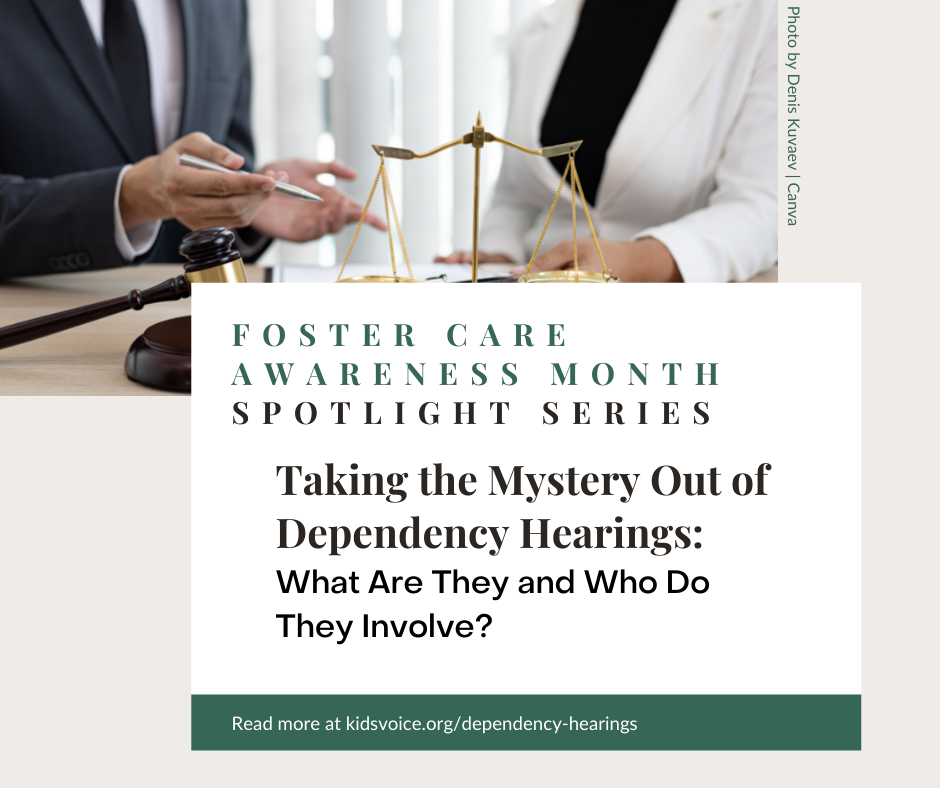
KidsVoice represents youth ages 0-21 with open dependency cases in Allegheny County's Juvenile Court. But what exactly does that mean?
We created "Taking the Mystery Out of Dependency Hearings," a special series released on our social media during Foster Care Awareness Month in 2022, to break down the types of hearings involved in a child's dependency case and who may be present at these hearings.
What are the types of
dependency hearings?
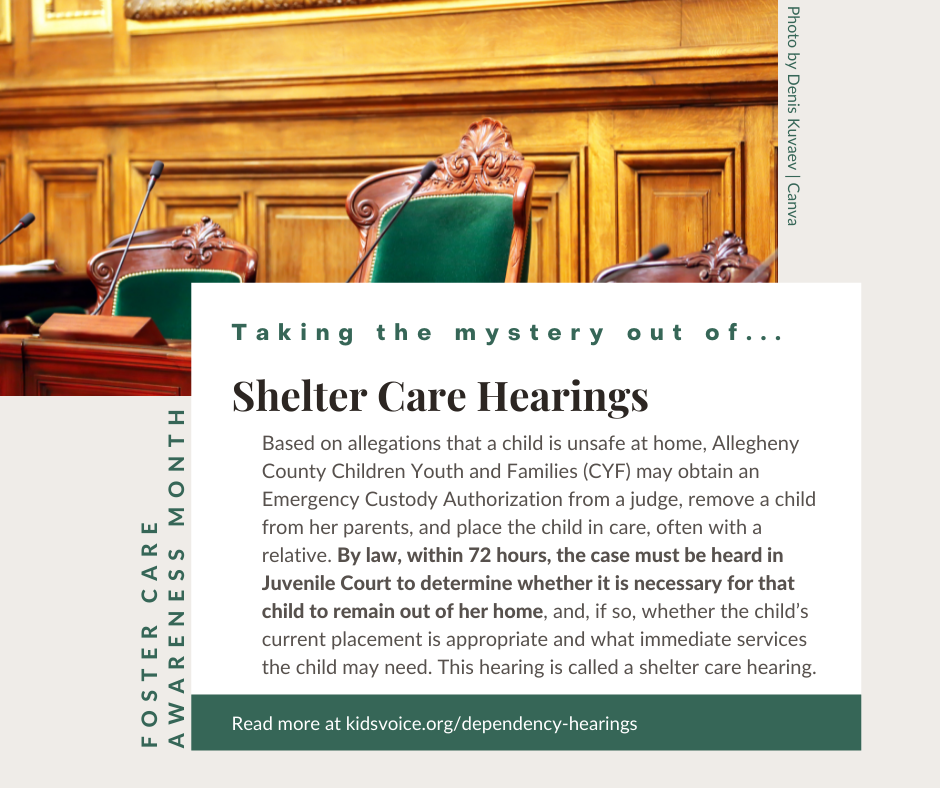
Shelter Care Hearings
When a child has been removed from their home by Allegheny County Child Youth and Families (CYF) due to allegations of abuse and/or neglect, state law requires that, within 72 hours, a Shelter Care Hearing be held to determine whether it is necessary for the child to remain outside of their home. This hearing may also be referred to as an Emergency Shelter Hearing.
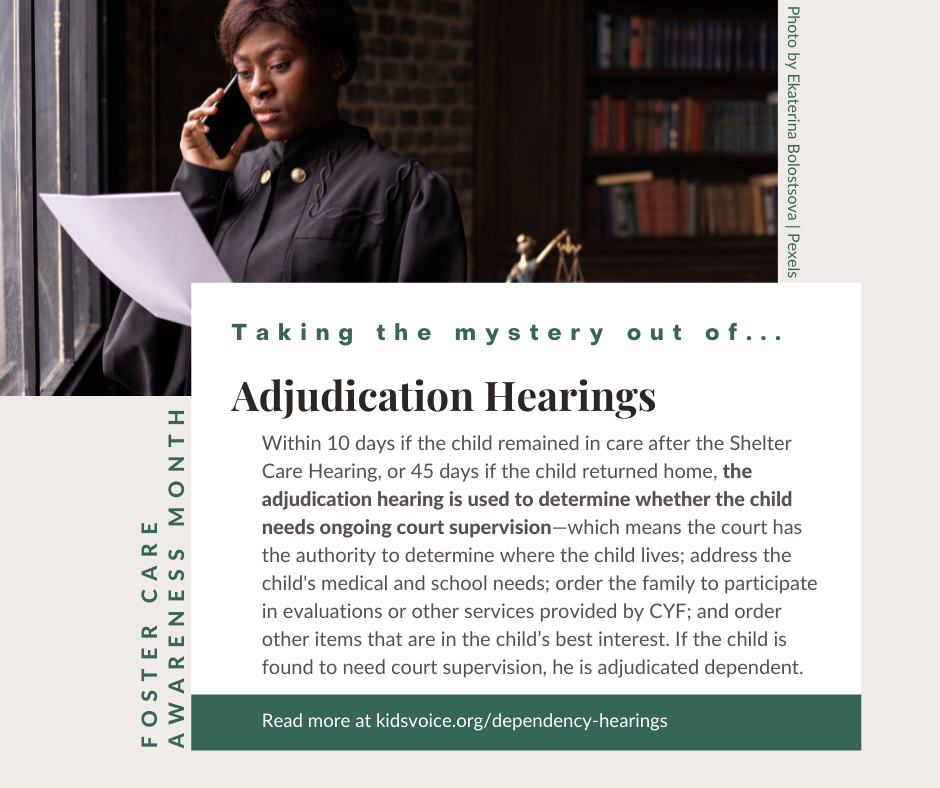
Adjudication Hearings
Within 10 days if the child remained in care after the Shelter Care Hearing, or 45 days if the child returned home, the adjudication hearing is used to determine whether the child needs ongoing court supervision—which means the court has the authority to determine where the child lives; address the child's medical and school needs; order the family to participate in evaluations or other services provided by CYF; and order other items that are in the child’s best interest.
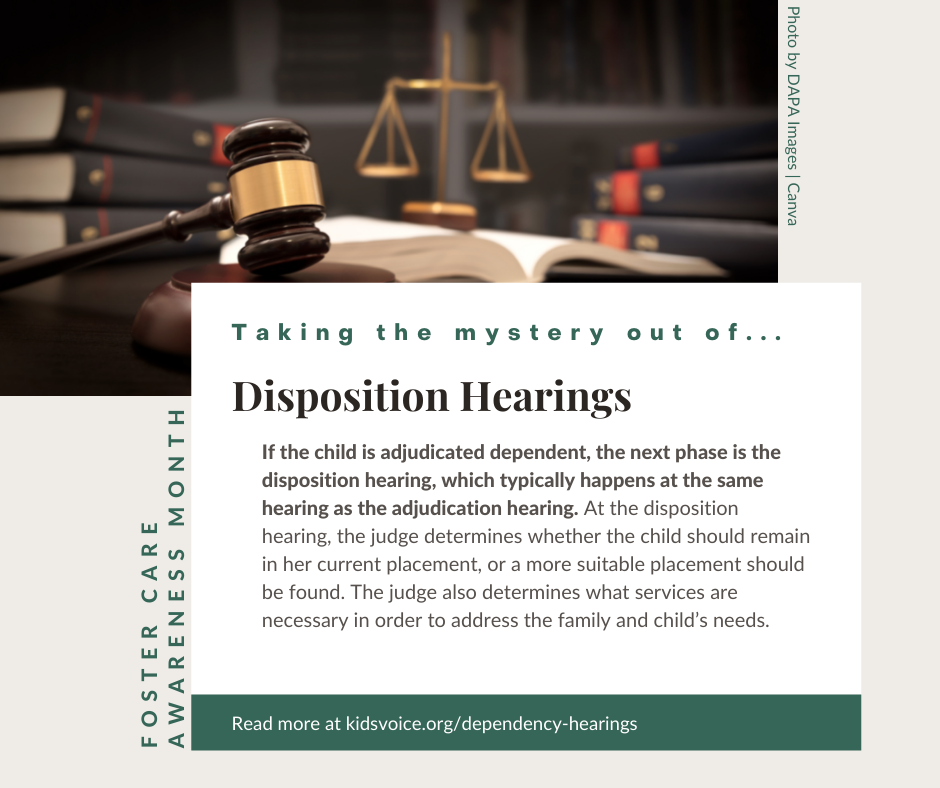
Disposition Hearings
If a child becomes adjudicated dependent, a disposition hearing will usually be held immediately after the adjudication hearing. During this hearing, the judge determines longer-term living arrangements, services, and goals.
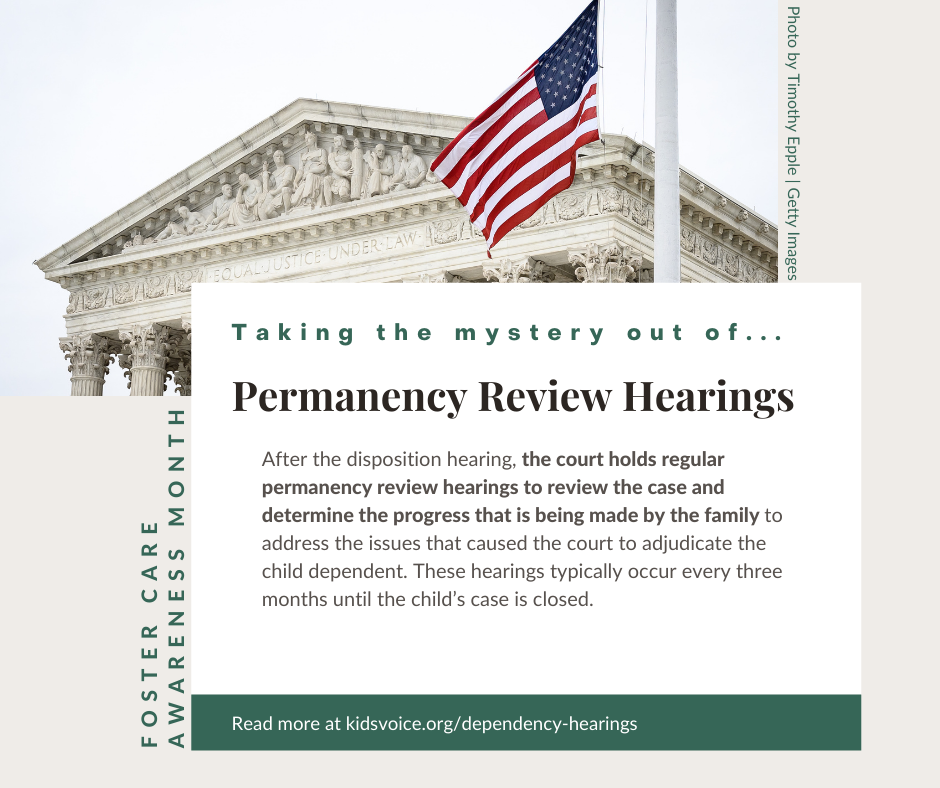
Permanency Review Hearings
For a child in foster care, Permanency Review Hearings are required by law every six months but are typically every three months in Allegheny County. Case reviews ensure the child's best interests are being met and the family is working towards its goals.
.png)
Closing the Case
Permanency review hearings continue until a dependent child’s case is closed, which typically happens in one of four ways: reunification, adoption, permanent legal custody is granted to the foster parents, or the child ages out.
Youth age out of the foster care system no earlier than their 18th birthday. In Allegheny County, they may choose to keep their case open until age 21. KidsVoice continues to work with aged-out youth through age twenty-four.
Who is in the courtroom?
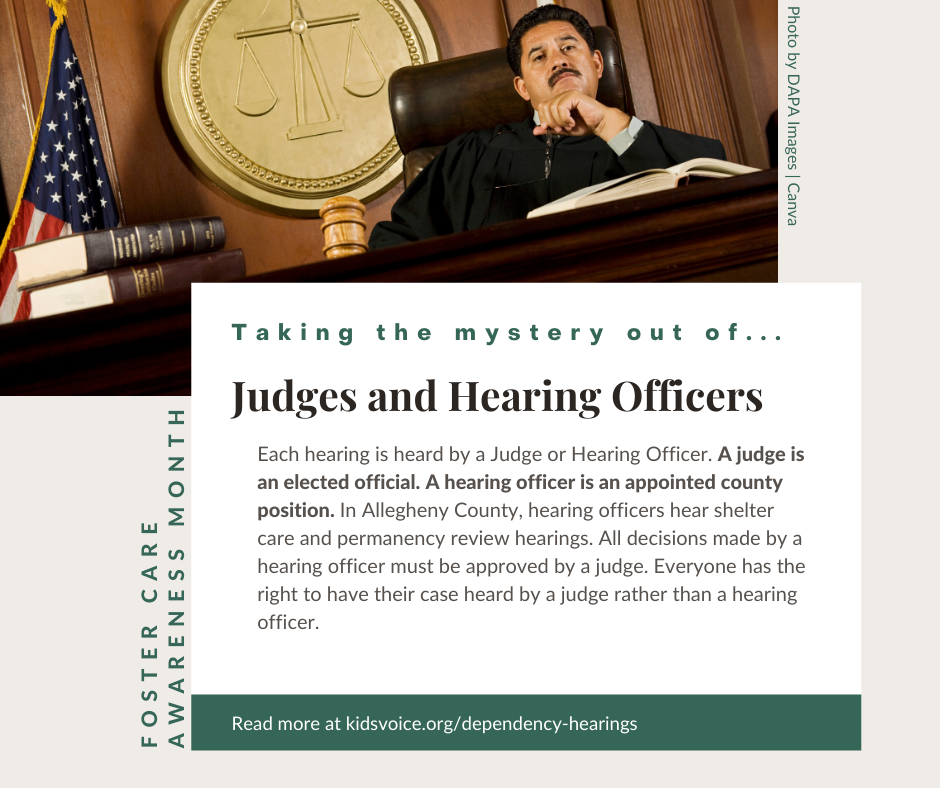
Judges and Hearing Officers
Each hearing is heard by a judge, who is an elected official, or a hearing officer, who is an appointed county employee.
In Allegheny County, there are three hearing officers. They hear shelter care hearings and permanency review hearings. The county has nine primary juvenile court judges–plus seven family court judges who also hear some dependency cases.
All decisions made by a hearing officer must be approved by a judge. Everyone has the right to have their case heard by a judge rather than a hearing officer.
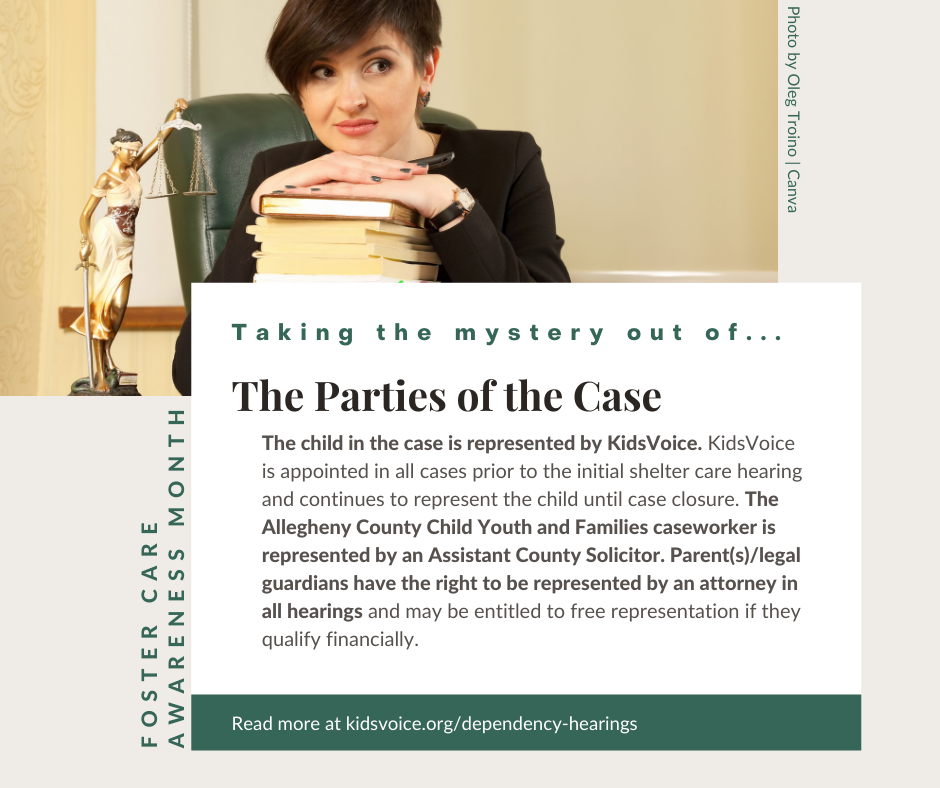
The Parties of the Case
Three parties are involved in each dependency hearing: the child, the parent(s) or legal guardian(s), and the county.
The child in the case is represented by a legal advocate. KidsVoice lawyers are appointed in nearly all dependency cases in Allegheny County and represent the child from the child’s initial shelter care hearing through case closure.
The CYF caseworker is represented by an Assistant County Solicitor.
Parents and legal guardians also have the right to be represented by an attorney. A parent can be appointed an attorney at no cost to them if the parent qualifies financially.
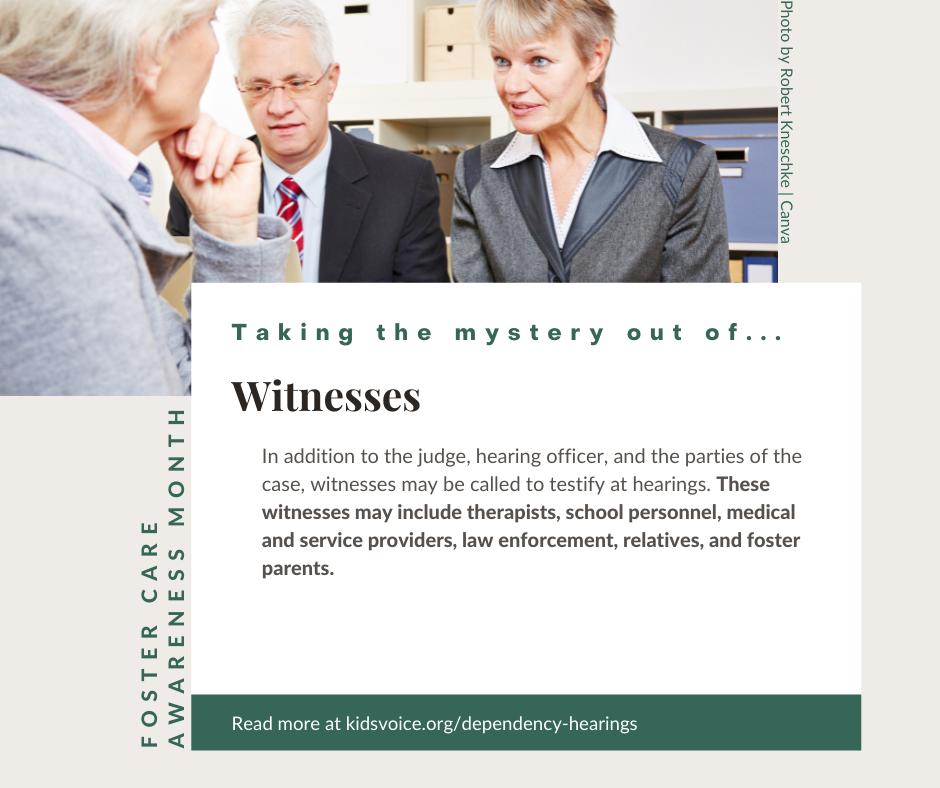
Witnesses
In addition to the judge, hearing officer, and the parties of the case, witnesses may be called to testify at hearings. These witnesses may include therapists, school personnel, medical and service providers, law enforcement, relatives, and foster parents.
Stay Informed
Never miss an update! Sign up for the KidsVoice newsletter to learn about upcoming events, announcements, donor and volunteer opportunities, and current initiatives.

